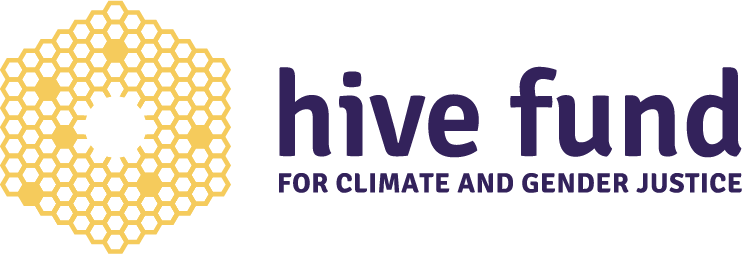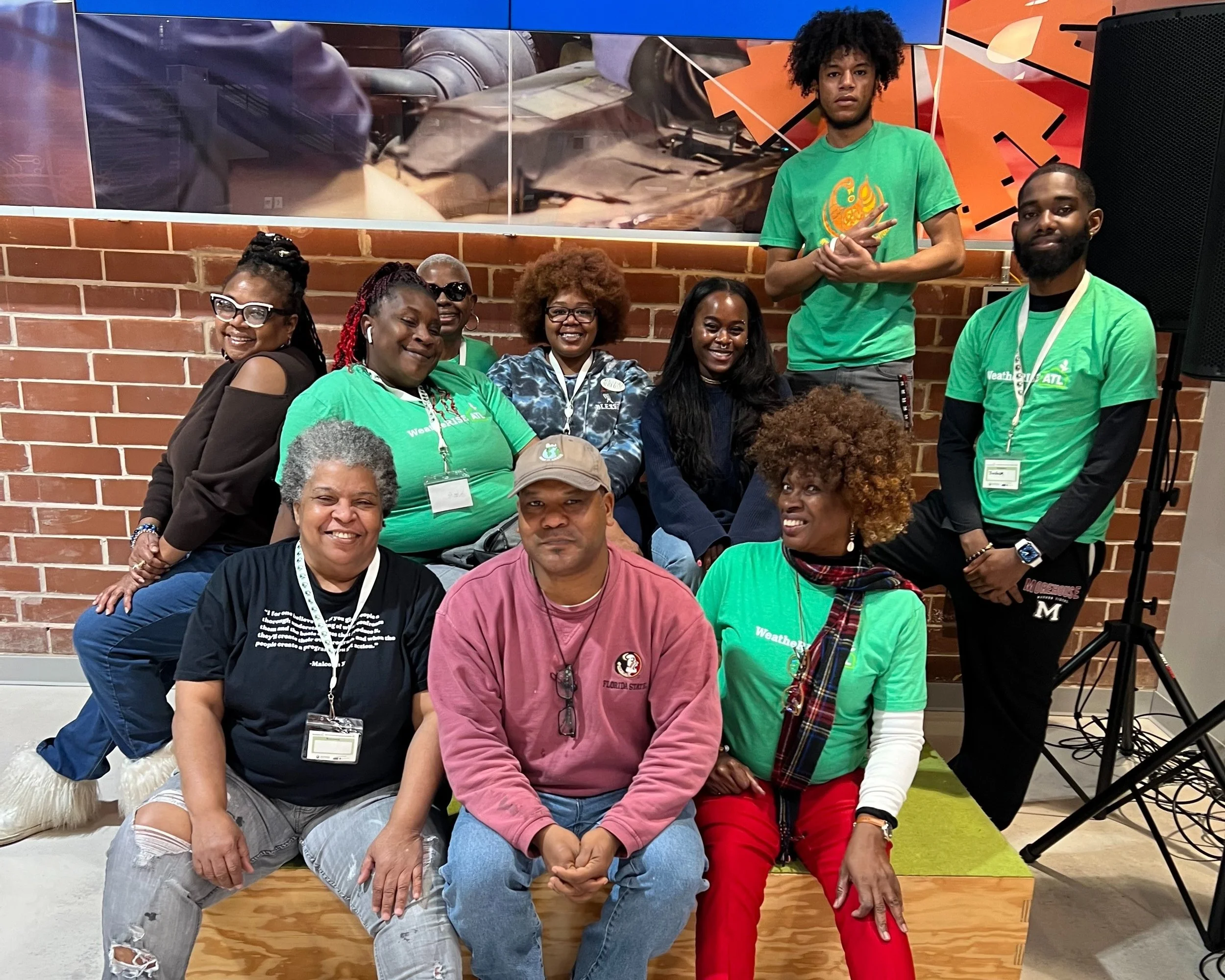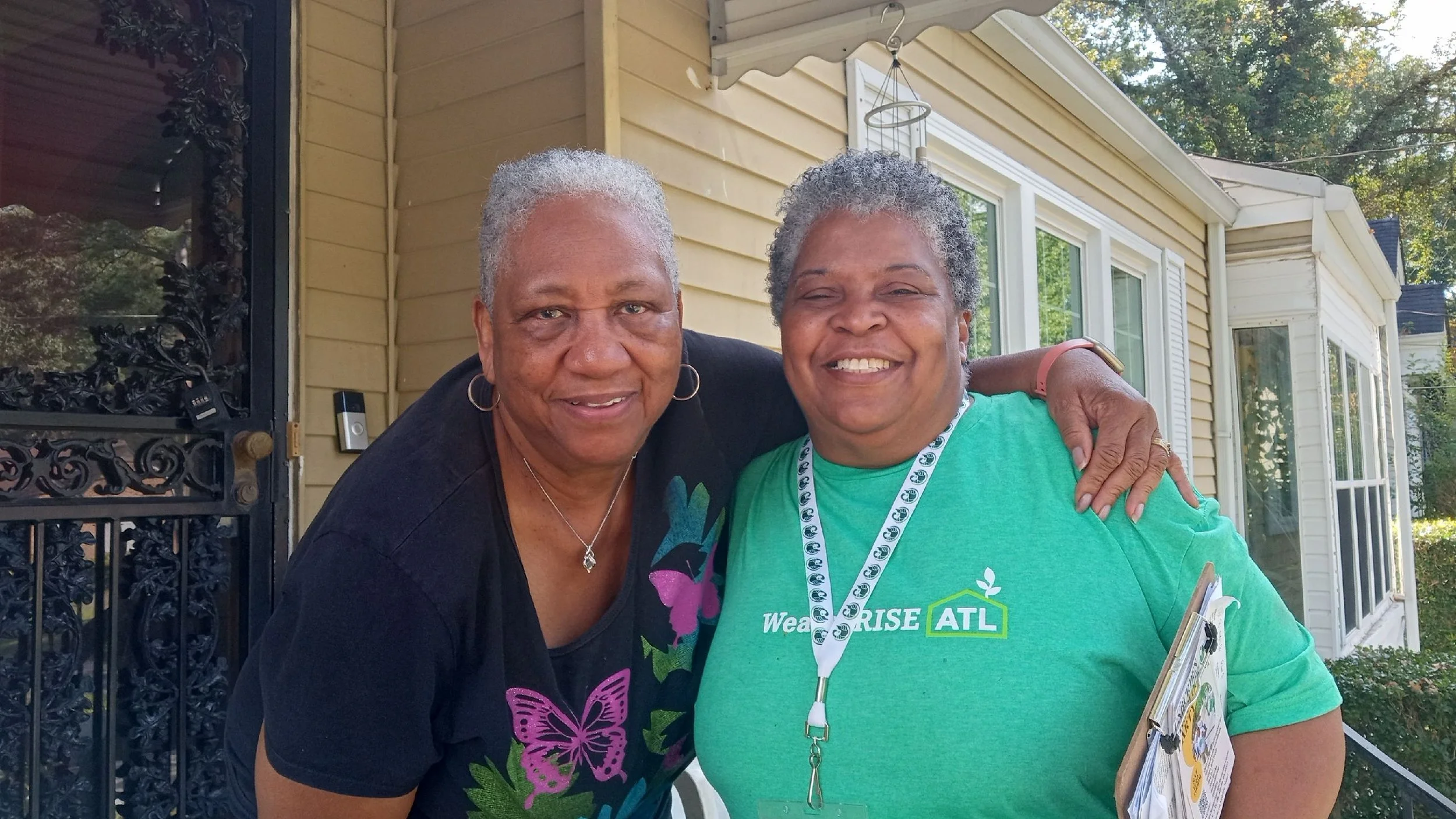Laying the Groundwork for a Just and Inclusive Energy Transition in Atlanta
This article was written as part of our 2024 Impact Report.
In November of 2023, community outreach ambassador Alkebulan Foster and her colleagues at Sustainable Georgia Futures sat for a debrief about their campaign to promote Atlanta’s pilot energy efficiency program, WeatheRISE ATL. As she introduced herself, Foster explained what made this campaign so powerful:
“It’s about making deep connections with the community, allowing people to be heard and seen,” she said. “We had some amazing touching experiences that made us really know we were making a difference.”
Alkebulan Foster, far left, with the WeatheRISE team.
Understanding and responding to communities’ needs is at the core of Sustainable Georgia Futures’ (SGF) approach to supporting Atlanta’s cleaner energy transition. And what they’ve learned — and set in motion — through the WeatheRISE program will be critical to the success of future efforts, including a new statewide solar program they are helping roll out over the next year with funding from the federal Inflation Reduction Act.
The WeatheRISE program itself was birthed out of a community organizing effort around the City of Atlanta’s clean energy plan. Black Sustainability Inc. and West Atlanta Watershed Alliance worked to ensure residents in Atlanta’s six most energy burdened neighborhoods were informed during the planning process, participated on a Clean Energy Advisory Board, and were compensated for their time. When the plan, “100% Clean Energy for 100% of Atlantans,” was adopted in 2019, they collectively recognized that it didn’t reflect what was happening on the ground in their communities and wasn’t accessible to ordinary people. They translated it into a People’s Clean Energy Plan that was easier to understand and used it to spark action and address what their communities really needed. One of the top priorities that came out of this process was resources to weatherize the older, inefficient homes that were characteristic of the city’s lower wealth communities and contributing to crippling energy bills.
It took years of advocacy through two mayoral cycles, the commitment of the city’s sustainability office, and the availability of COVID recovery funds for these resources to come to fruition. But in 2022 they finally did, and Sustainable Georgia Futures was selected to be the outreach partner for the new WeatheRISE program. In the year that followed, SGF trained nine “canvas ambassadors” from the community to do education and outreach. They hosted block parties and climate justice education meetings and knocked on 5400 doors to conduct surveys and sign people up for energy audits and upgrades that will make their houses more efficient and reduce their energy costs. In the process, SGF uncovered structural barriers their communities and other Black, Brown, and low-wealth communities across the South are facing that will have to be addressed to successfully transition our residential energy systems.
For starters, dealing with energy upgrades might not be at the top of peoples’ priority lists. “There are all of these other factors that are at play, other things about life that people put higher,” said Ty Wilson, Program Manager for Sustainable Georgia Futures. “We have to make sure we listen first and be intentional about connecting people to other solutions that may be more aligned.”
One of the priorities people raised is home repairs. “There are a lot of homes that aren’t at a point where weatherization is even a possibility,” said Wilson. “Foundation work, roof work, mold remediation, all these things need to be addressed.” she continued, noting that federal clean energy dollars don’t cover these kinds of things.
In response, SGF has worked to connect homeowners with both local and federal resources that can help with core home repairs. But the need dwarfs the amount of funding currently available.
There were barriers when it came to getting the work done as well. As WeatheRISE ATL got underway, the lead implementation partner struggled to find minority owned businesses that were certified to perform energy audits in Georgia, pointing to both a gap and an opportunity to train local workers and incubate local businesses. Hive Fund grantee partners Georgia STAND-UP and HBCU Green Fund partnered with Gemini Solutions to start a training program for energy auditors in Atlanta, graduating their first cohort of 10 this summer. The WeatheRISE ambassadors will be the next to go through the program, expanding their skill sets and opening new opportunities for them to join the clean energy workforce.
The pilot also underscored the need for more weatherization and renewable energy contractors who have the cultural competency and skills to work with communities that have experienced decades of disinvestment. B.O.S.S. (Black Owners of Solar Services), received a grant from the Department of Energy in 2023 to provide training and resources for small contractors to participate in Inflation Reduction Act projects, and partnered with SGF to connect Black-owned businesses with the WeatheRISE program to complete the upgrades.
This early work to understand and innovate solutions to underlying challenges is laying the groundwork for bigger, federally funded efforts like Georgia BRIGHT, the new solar program, to succeed not just in cleaning up the energy mix, but also in improving people’s lives.
“As long as Georgia BRIGHT is able to carry forward with same compassion and listening ear as the WeatheRISE campaign,” said Wilson, “it will be a smooth transition.”


